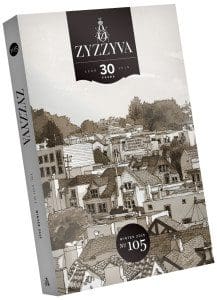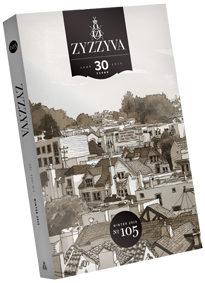 From the corner, a small boom box played “Get Off of My Cloud” by the Stones, over and over, because some drunk whose name I never cared to remember kept rewinding the tape. Every time the chorus cameon he would—without irony—jump up and sing in someone’s face, “Hey, hey. You, you. Get off of my cloud.”
From the corner, a small boom box played “Get Off of My Cloud” by the Stones, over and over, because some drunk whose name I never cared to remember kept rewinding the tape. Every time the chorus cameon he would—without irony—jump up and sing in someone’s face, “Hey, hey. You, you. Get off of my cloud.”
Outside, torrential rain pummeled the village. It was night, and we were maybe fifteen people crowded into a single room. By day, the ground floor of the two-story teak house served as a restaurant, and at night, as Pai’s trading post. Na’s it was called, after the proprietor, who lived upstairs with her son and sister, and whose father slept on a mat under the stairs, gaunt and toothless, constantly wheezing. The entire front of the first floor was open, like a garage with the door up, and the room lit by several dusty glass kerosene lamps that cast long shadows out onto the gooey, rain-beaten road. A slight breeze brought little relief from either the heat or the sour smell of sweat. It was summer, and days could hit 110 degrees, so that even at night with the rain falling the air could be stifling.
I tended to steer clear of Na’s after dark, going only if I couldn’t wait until morning for supplies or was so desperate for human interaction I was willing to settle for the company of the ragtag group that assembled there: drunkards and braggarts who fancied themselves outlaws and whose tall tales you had to suffer a hundred times over. But on this particular night I’d had little choice. The loosely woven thatched walls of my hut had proven no defense against the heavy rain, and so, in order to stay dry, I took refuge with my fellow storm-dodging expats.
I was in a corner, at a two-person table, playing checkers with Na’s boy, while a group of local merchants crowded in with the regulars to fill the place. There was a pack of hill tribe women, haggard grandmothers without teeth, their gums stained red from the betel nuts they chewed and spit like tobacco, squatting on the floor with their bright pink and purple handicraft bags. There was the local music troupe, comprised of one stern man, six bored children, and a cart of wooden stringed instruments. And then there was the local moonshiner, a squinty-eyed pudgy man with a clay pot of mountain brew. I’d tried his concoction only once. As hallucinogenic as it was alcoholic, it felt like broken glass going down my throat, and like rocks in my head when I woke up. As Na’s father snored beneath the stairs, and one of the hill tribe girls played an atonal melody on a handcarved Bpee, that idiot kept rewinding the Stones tape and yelling, “Hey, hey. You, you…” And that’s when Roy walked in. Draped in a dark green poncho, soaked head to toe.
I’d seen him only once before. He was American, but not like the others in our castaway town. He walked straight over to Na and wordlessly handed her a package from beneath his poncho. Then he turned and walked back out into the rain.
The next morning, after the storm passed, under a clear blue sky and fiery white summer sun, he appeared outside my hut. I was wearing only a pair of soggy boxers as I hung the rest of my wet belongings, including my calendar, over the railing to dry, when he put a foot on the first rung of my ladder, held up a jar of peanut butter, and pointed to the picture of the Thai king.
“Nice picture of Elvis,” he said.
Peanut butter, along with regular butter, cheese, bread, and coffee, were all but impossible to come by in Thailand back then. You could get fried cockroaches or stink beans, rice with red ants and larvae, duck mouths or silkworms, but the closest to a cup of coffee you could find were freeze-dried crystals, and for everything else, there weren’t even passable substitutes. So to be invited to share a jar of Jif, well that was about as generous a peace offering as any Westerner could hope for.
I invited him in and we sat on damp mats and passed the plastic jar of creamy peanut butter back and forth, wordlessly scooping in our fingers and sucking them clean until the container wasn’t just empty but was so thoroughly smearless you could have given it to a baby with fatal nut allergies and gone to sleep knowing he would be fine.
From his satchel Roy pulled two cans of Budweiser, handed me one, and cracked open his own. We still hadn’t said more than a word to each other, but he raised his can and nodded, and I did the same, and we both drank, washing the sweet butter that coated our mouths with another hard-to-come-by product in Southeast Asia: American beer.
Read the rest of “The Snake That Always Bites My Ass.” Get your copy of ZYZZYVA No. 105!

